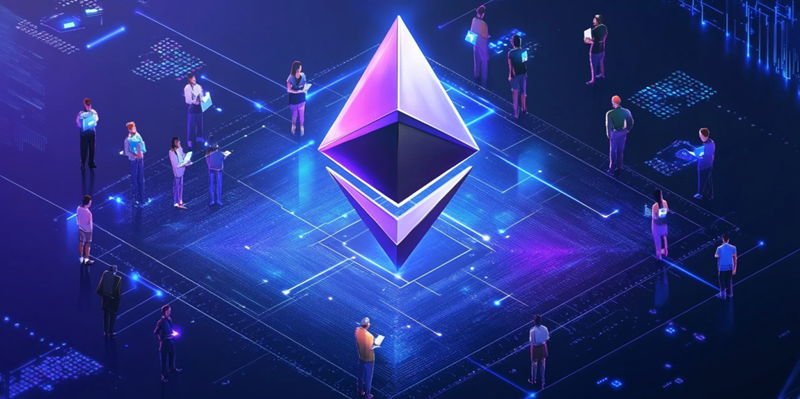The impact of blockchain education on fostering global inclusion, particularly in underserved regions, is a critical area of analysis. Blockchain technology promises to connect people, ideas, and opportunities across geographical boundaries. However, this promise is unevenly distributed, with numerous underserved communities lacking the resources to fully engage in the digital economy. Education emerges as the great equalizer, enabling global inclusion by equipping individuals with the knowledge and skills necessary to navigate the complexities of blockchain and Web3. This article delves into how blockchain education is shaping the future of global inclusion, with a specific focus on projects like Philcoin’s PHILApp and the Polkadot Blockchain Academy’s PBA-X program.
The Digital Divide and the Promise of Web3 Education
The pressing issue of the digital divide continues to be a major problem in today’s interconnected world, particularly in underserved regions with limited access to technology and educational resources. Web3 education offers an effective solution to this problem by empowering individuals with the skills and knowledge required to participate in decentralized ecosystems. These educational programs focused on blockchain and Web3 do more than just teach theoretical concepts; they bridge the gap between opportunity and access. By providing learners with practical skills such as smart contract development and dApp design, Web3 education opens doors to new opportunities.
Initiatives like the Blockchain Education Network (BEN) and ConsenSys Academy have taken on the challenging task of addressing these gaps on a large scale. BEN fosters global communities of learners by creating collaborative spaces where blockchain education is available at all levels. ConsenSys Academy, on the other hand, offers comprehensive training programs aimed at aspiring developers, empowering them with marketable skills in blockchain technology. Together, these efforts are fostering a culture of learning that bridges the digital divide, effectively making Web3 education an essential component of global inclusion.
Real-World Impact of Web3 Education Programs
As the demand for blockchain expertise continues to grow, Web3 education programs are increasingly designed to have real-world impacts that extend beyond theoretical knowledge. These programs enable learners to apply blockchain concepts in practical, community-oriented settings. For instance, the Polkadot Blockchain Academy’s PBA-X program offers a comprehensive four-week online course. This course aims to provide participants with a foundational understanding of blockchain technology, covering crucial topics such as cryptography, governance, and development using Polkadot’s Substrate framework. By lowering both technical and financial barriers, the PBA-X makes blockchain education accessible to a wide range of learners from diverse backgrounds.
Philcoin is another example that illustrates how education can empower underserved communities. Its PHILApp is specifically designed for low-bandwidth environments and combines education with philanthropy. PHILApp offers tools for financial literacy, digital skills development, social networking, and entertainment. Its unique ‘give-to-earn’ model incentivizes users to engage with the platform by offering rewards in Philcoin’s native cryptocurrency for meaningful participation. This model creates a self-sustaining cycle of empowerment where users not only gain knowledge but also acquire resources to reinvest in their communities, significantly amplifying the impact of blockchain education.
Blockchain Education and Philanthropy: A Powerful Combination
Beyond education, blockchain technology holds immense potential to address pressing societal challenges through philanthropic efforts. Philcoin serves as a prime example of this potential by integrating blockchain education with charitable initiatives. By migrating to the Polygon network, Philcoin has managed to reduce transaction costs and improve scalability. This ensures that its services remain accessible to users in underserved regions, solidifying its role in fostering global inclusion.
The real-world impact of these educational initiatives has been significant and far-reaching. Philcoin’s collaboration with Mayor Topázio in Florianópolis, Brazil, brought food to thousands of families and supported various educational and economic opportunities. This collaborative effort created sustainable ecosystems for social support. In Costa Rica, Philcoin partnered with the Cabécar “Chirripo” tribe to build essential infrastructure, including roads, schools, and hospitals. This partnership successfully bridged the gap between traditional indigenous lifestyles and the modern world, while also preserving cultural heritage and stimulating economic empowerment through educational advancements.
Success Stories and Individual Transformations
The Polkadot Blockchain Academy’s PBA-X program has also demonstrated its life-changing impact through individual success stories. One notable example is Jay Popat, a program graduate who described his experience as “intense, rewarding, and transformative.” Through PBA-X, Jay gained practical knowledge in blockchain development and governance. He has since applied this knowledge to building impactful projects in the Web3 space. Jay’s story is just one example of how accessible and rigorous educational programs can empower individuals to become leaders in decentralized industries, ultimately contributing to global inclusion.
By intertwining education with philanthropy and skill-building, initiatives like Philcoin and PBA-X effectively address the knowledge gap while fostering a culture of giving and empowerment. This dual focus creates a sustainable model where learning and social impact go hand in hand. Despite these advancements, challenges persist, especially in underserved regions where barriers such as limited internet access, low digital literacy, and a lack of localized educational content remain prevalent. Overcoming these challenges will require collaborative efforts among governments, nonprofits, and private organizations to create a conducive environment for blockchain education.
Overcoming Challenges and Future Directions
Examining the impact of blockchain education on fostering global inclusion, especially in underserved areas, is crucial. Blockchain technology has the potential to connect people, ideas, and opportunities across different regions. However, this potential is not evenly distributed, as many underserved communities lack the resources to fully participate in the digital economy. Education serves as a significant equalizer, enabling global inclusion by providing individuals with the knowledge and skills needed to navigate the complexities of blockchain and Web3. By doing so, it empowers people to participate in the digital economy effectively. This discussion explores how blockchain education is shaping the future of global inclusion, highlighting projects such as Philcoin’s PHILApp and the Polkadot Blockchain Academy’s PBA-X program. These initiatives aim to bridge the gap by offering blockchain education and resources to those who need it most, thus fostering greater global participation and inclusion in the burgeoning digital economy.

